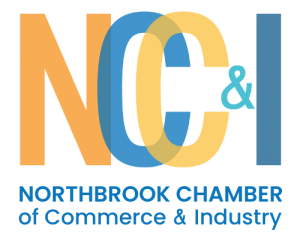Northbrook to Implement 10-cent Tax on Single Use Bags in 2024
In pursuit of its Climate Action Plan goals, the Village of Northbrook will institute a tax on single-use bags at larger retail stores beginning January 1, 2024. The tax ordinance, approved by the Board of Trustees in February, applies a 10-cent fee to each paper or plastic bag given out at stores larger than 3,000 square feet, with several exemptions for particular types of businesses or products.
The ordinance covers any retail store larger than 3,000 square feet, with exemptions for restaurants, pharmacies, farmers markets, dry cleaners, and bags for produce and other perishable items. Affected businesses will collect the $0.10 per bag at the point of purchase, retaining $0.05 to cover its own implementation expenses. The Village’s portion of collected funds will be allocated to a Sustainability Fund, funding local initiatives including a free reusable bag distribution program.
Trustee Robert Israel stressed that the goal of the ordinance is to reduce disposable bag use, not to raise Village revenue. “It would make me very, very happy if we did not collect any money from this,” said Israel. “That would mean that everybody in Northbrook would have changed their behavior and brought their own bags.”
In September 2021, the Trustees prioritized reduction of single-use products as one of its top action items from the Climate Action Plan, with an overall goal of phasing out disposable bags, utensils, napkins, and containers by 2026. The Village’s Sustainability Commission recommended the bag tax provisions following an extensive review of approaches taken by other communities. Similar ordinances to Northbrook’s have been implemented in Batavia, Oak Park, Woodstock and Edwardsville.
“Findings from assessments of similar ordinances show that these programs do work,” stated Village Sustainability Coordinator Tessa Murray during the Board Meeting. She cited a study by the Illinois Municipal Policy Journal that illustrated both the effectiveness of the policies and the lack of negative impacts on business.
Village President Kathryn Ciesla suggested an extended launch date of January 1 to provide time for educational outreach to affected businesses, as well as the general community. She cited the Chamber as a partner in facilitating communication and meetings.
“We’re glad that the Village is allowing ample time for local businesses and shoppers to become educated about the new bag ordinance,” noted Chamber Executive Director Kathi Quinn after passage of the ordinance. “The Chamber will be actively involved in helping to spread the word to make the eventual transition as smooth as possible for everyone.”
